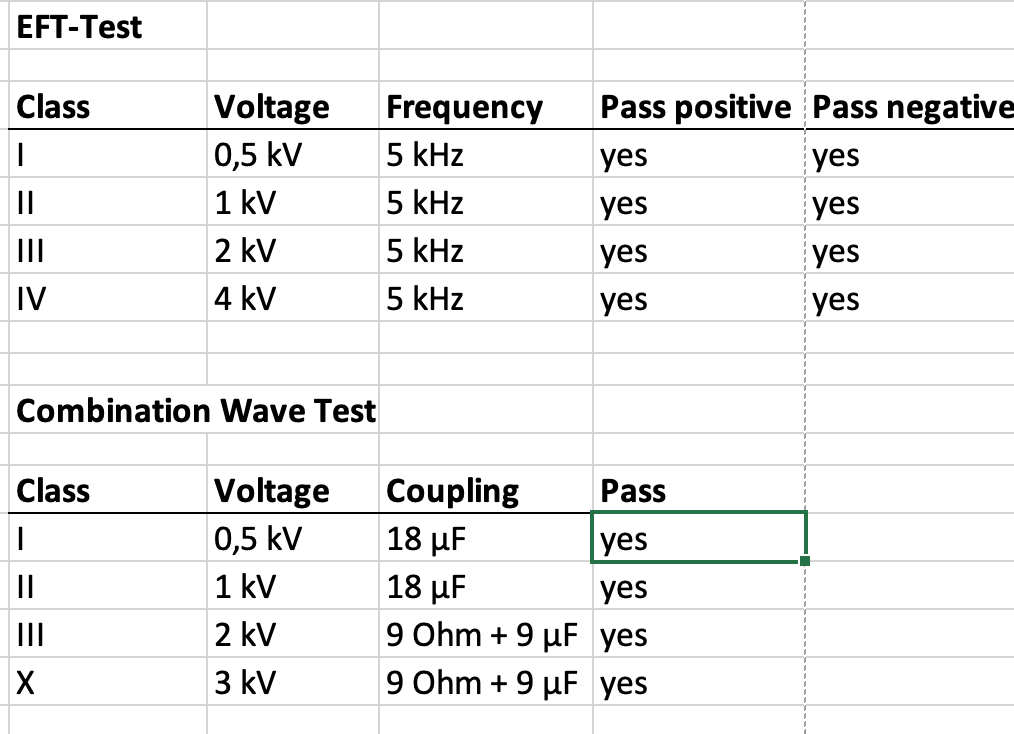Long time no see...
One sunburn during vacation later, I finally got to test the immunity of the module.
Before the results, I will briefly go over the "but why". The answer is pretty simple: Because in the power grid, natural occurring phenomenons such as lightning strikes can do a lot of destruction. Of course, there are many other safety features in residential and industrial environments, like surge protection systems that "deflect" most of the damage. The most danger comes from inside the system, like moles in spy movies. If the system is not well protected, this can even lead to the destruction of it.
(Serious) manufacturers of power supplies and isolation equipment will indicate the immunity for their component. A good example is the AC-DC converter used in this project, the PBO-1-S5.

Next to (radiated) emissions and electrostatic discharge, there are two types of surges that can occur in a system.
1. Electrical Fast Transients (EFT)/Burst surges are rapid needle impulses that simulate the switching of a circuit breaker or a large load in general.
2. Surges, that are a "combination wave (1.2/50;8/20)" of a voltage that with 1.2µs risetime and a 50µs fall and a current with a rise(fall)-time of 8(20)µs. This simulates lightning strikes as well as switching of large load.
For the test, my university provided the testequipment necessary for this job. Namely the Schaffner NSG 600 with the modules 623 (combination wave) and 625 (EFT/Burst).
The adaptor can be safely plugged in and via a remote, I was able to start the test.
The results are pictured below:

The generator was only capable of a 3kV surge, so this had to be the special class.
I noticed one strange thing with a 4kV EFT/Burst, where the display would draw white lines and ultimately gave out. Just to be sure, I ran the test twice to make sure it wasn't just a fluke (As with every other test), and what do you know? The second test ran without any problems. A third test, too.
In the end, I declared it immune to all tests conducted. SUCCESS!
 Sebastian
Sebastian
Discussions
Become a Hackaday.io Member
Create an account to leave a comment. Already have an account? Log In.